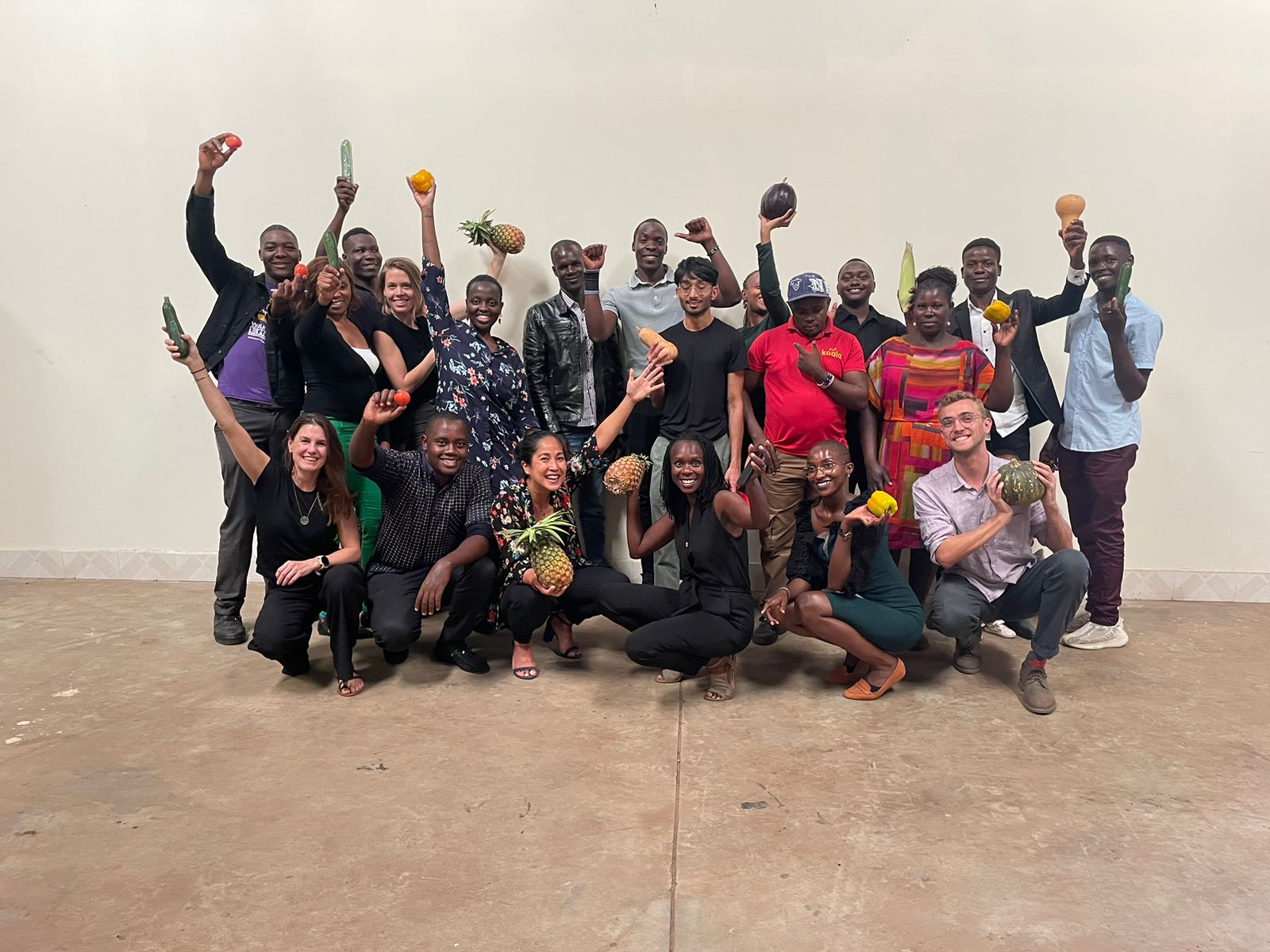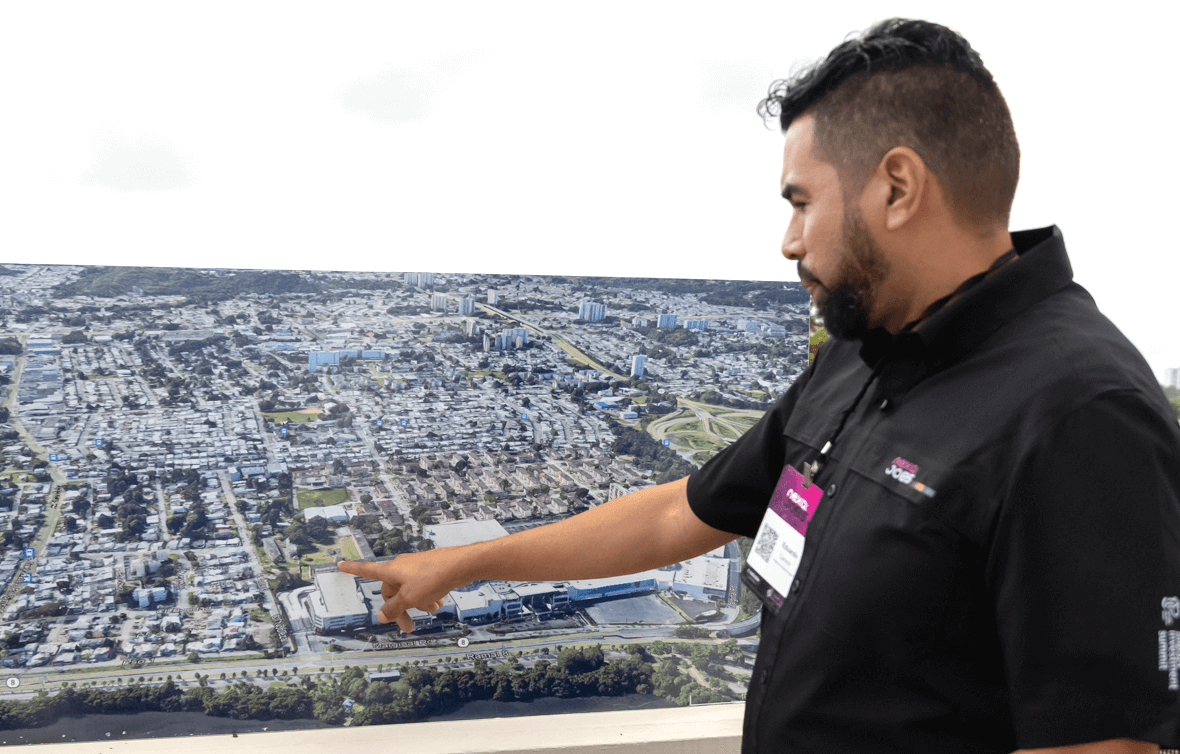Greetings, ImpactAlpha readers!
President George H.W. Bush, impact investor. There’s a lineage from the late president’s 1988 “thousand points of light” speech; through Points of Light, the nonprofit service organization he launched; to its Civic Accelerator, one of the first programs to invest in “civic” ventures. Founder Ayesha Khanna says the accelerator advances President Bush’s values of service to society, “investing in entrepreneurs who are working on and dedicating their lives to solving challenging social issues while engaging people as part of the process.” CivicX, as the 10-week bootcamp and fund is known, is graduating its 12th cohort of civic entrepreneurs in Philadelphia this month. The two most promising ventures receive investments of $50,000. The 13 ventures in the latest group offer a range of solutions to the challenge: How might we increase financial resilience and economic mobility for all to succeed in the innovation economy? A worthy legacy.
–David Bank, editor
Featured: The Brief’s Big 8
1. New ‘trustbusters’ are monopoly-proofing their portfolios. A backlash to traditional venture capital structures has led to a flourishing of innovative mechanisms for financing companies that preserve independence, provide ways for investors to get their money back and incentivize employee ownership. “When success for a company is being acquired by another company, you are essentially encouraging companies to pursue consolidation and monopolization as a specific strategy,” says Village Capital’s Ross Baird. In Cleveland, Evergreen Cooperatives is buying out small business owners and selling the enterprises to employees via Employee Stock Ownership Plans. Distributed and resilient.
- Village Capital on “Alternative investment strategies to drive inclusion innovation.”
2. Whither impact in a downturn – or an all-out recession? Values-aligned investing in the past decade has had a strong tailwind in the longest bull market in U.S. history. There’s danger ahead for ESG (for environmental, social and governance) and thematic impact investing strategies as a growing number of indicators point to the end of the business cycle – and a possible recession, warns Vodia Capital’s Avi Deutsch in a guest post on ImpactAlpha. Won’t true ESG value be rewarded in a downturn, we asked Avi? “ESG is a tool for longer term risk management, and is unlikely to produce ‘alpha’ in the short term, especially during a market correction,” he responded. “This would mean that even the best ESG products are likely to move in lock-step with the market, and for that matter, with greenwashed products.” What do you think? (Join the conversation on our subscriber-only Slack channel or on LinkedIn, or email your thoughts to [email protected])
3. Tapping muni-bonds to finance ‘distributed green infrastructure’. Last month’s $61.4 million issue from the Industrial Development Authority of Pinal County in Arizona looked like a typical tax-exempt muni. But the bond is one of the first to finance a biodigester that generates “renewable natural gas” from dairy cow manure, reducing methane emissions. The proceeds of the 7.5% 15-year bond were loaned to the Wastewater Opportunity Fund, a $184 million fund of Equilibrium Capital, based in Portland, Oregon. “We didn’t go to impact investors, we didn’t go for program-related investments. We went to the municipal bond market,” Equilibrium’s Dave Chen told ImpactAlpha. The promise: lower-cost, tax-advantaged capital to rapidly scale “distributed green infrastructure.” Boring is exciting.
4. Agent of Impact: Paul Polman. The 62-year-old chief executive of consumer packaged goods giant Unilever called his successful defense last year against a hostile takeover “a near-death experience.” When Polman announced his retirement last week, he acknowledged some reluctant compromises to satisfy restive shareholders. But the core of Polman’s vision of sustainable, stakeholder capitalism, remains intact. Running Unilever for the benefit of consumers, customers and employees also benefits shareholders, he said in a farewell message. Polman delivered 290% total shareholder return delivered during his 10-year tenure. “Sustainability isn’t just the right thing to do,” he says. “It is essential to drive business growth.” Who’s the next Paul Polman? Follow ImpactAlpha on Instagram.
- What Paul Polman’s legacy means for socially and environmentally responsible companies. More.
- Agents of Impact weekly roundup: Follow the talent with career moves, job openings, events and opportunities.
5. Deals of the week. Drink from the deal firehose all week long on ImpactAlpha.com. A few that stood out:
- Fund raises. TPG aims for $3.5 billion for Rise Fund II… New Zealand’s Impact Enterprise Fund closed with $6.2 million in commitments.
- Return on inclusion. Harlem Capital launches first fund for under-represented entrepreneurs… Private-equity firms acquire veteran job-recruiting service Orion Talent.
- Growth markets. Egypt’s Halan raises early funding for motorcycle ride-hailing… Northstar Group puts $50 million into Topica’s online education platform for Southeast Asia… Brazilian fintech Creditoo raises $1.2 million for payroll lending… Repassa raises capital to help Brazilians recycle used clothes.
6. Climate crises spur demand for ‘adaptation finance.’ Climate-change ‘mitigation’ is essential. But we also need a crash investment strategy for ‘adaptation’ to the changes already in motion. Public and philanthropic investors are blending capital for resilient agriculture, coral-reef restoration and weather insurance with currency- and first-loss guarantees and early-stage support. Blended finance, “can and does attract commercial capital to adaptation sectors in emerging markets,” writes Justice Johnston of Convergence in a guest post on ImpactAlpha. The Sustainable Ocean Fund has a partial guarantee from USAID’s Development Credit Authority to mobilize capital for sustainable fisheries in Latin America and the Caribbean. Climate-smart.
- Climate-related. Under pressure from pension funds and other climate-wary institutional investors, Royal Dutch Shell will link short-term carbon emission reductions with executive pay.
7. The Call: Six sources of ‘gender alpha.’ At the outset of ImpactAlpha’s Agents of Impact conference call No. 5, Catalyst at Large Suzanne Biegel ticked off a half-dozen advantages available to investors who look through a gender lens. They include the governance and leadership dividend from having a diverse set of people in the boardroom and senior management; the innovation dividend from backing women entrepreneurs, co-founders, inventors and innovators; and the “size-of-the-women’s-market dividend” for companies aware of women’s increasing power in purchasing decisions. Collect the whole set.
- New from Calvert Impact Capital: “Why gender matters to your portfolio and what you can do about it.”
- Four for Women: The Wharton Social Impact Initiative documents the four criteria for companies that are good employers for women (and men, too).
- Special for subscribers: Click through for an audio recording of The Call.
8. How community development lenders are scaling up impact investing. The deployment of large amounts of capital for financial and social returns requires intermediaries rooted in both communities and the capital markets. In a guest post on ImpactAlpha, Next Street’s Tim Ferguson lays out how community development financial institutions are reaching new levels of scale. Reinvestment Fund and the Local Initiatives Support Corp. have issued S&P rated bonds. IFF, based in Chicago, is making markets and structuring transactions, much like the capital markets desk in an investment bank. Says Ferguson, “Having investment opportunities that are in the tens of millions of dollars will be important if the industry is to become an intermediary of choice for impact investors and their advisors.” The new alternatives.
— December 7, 2018.











